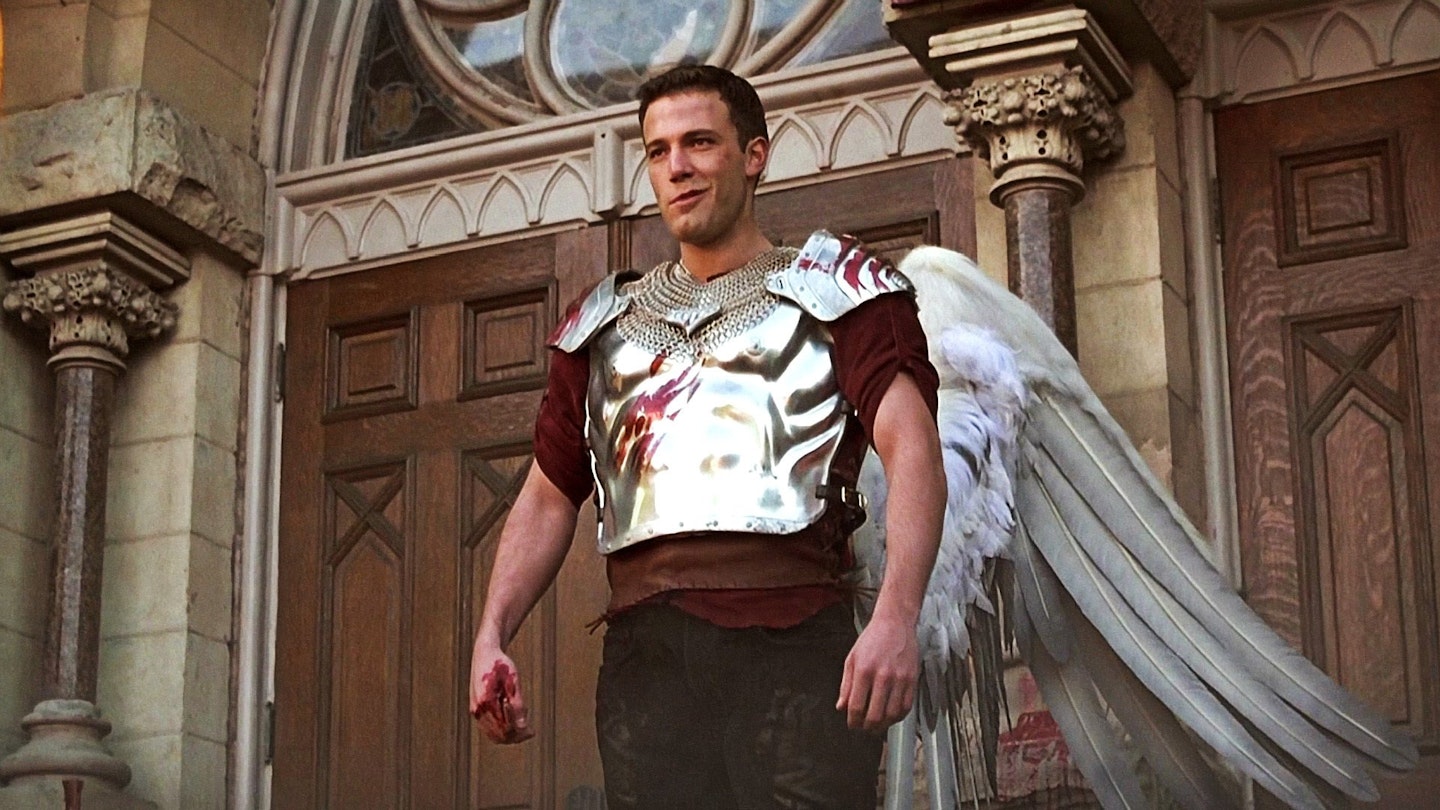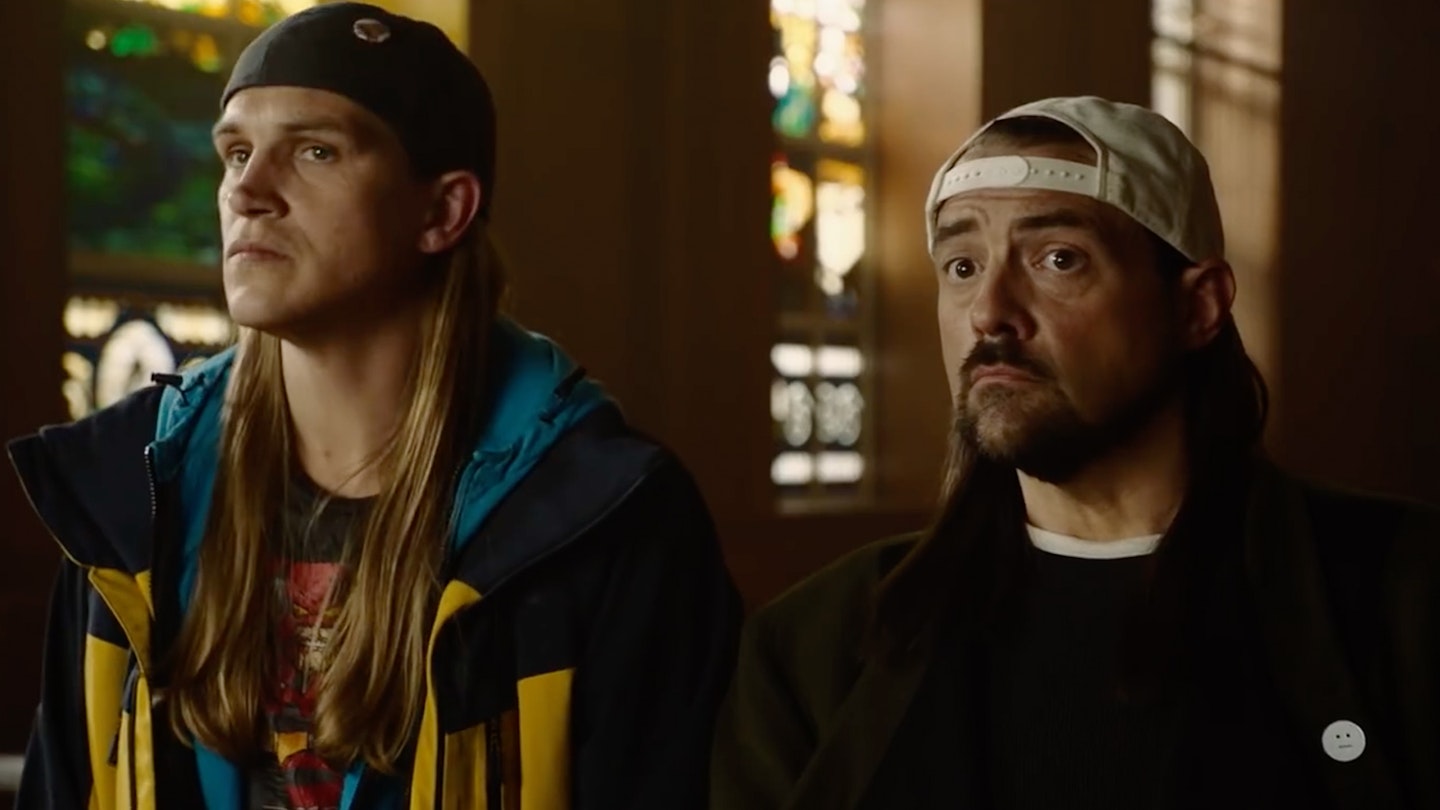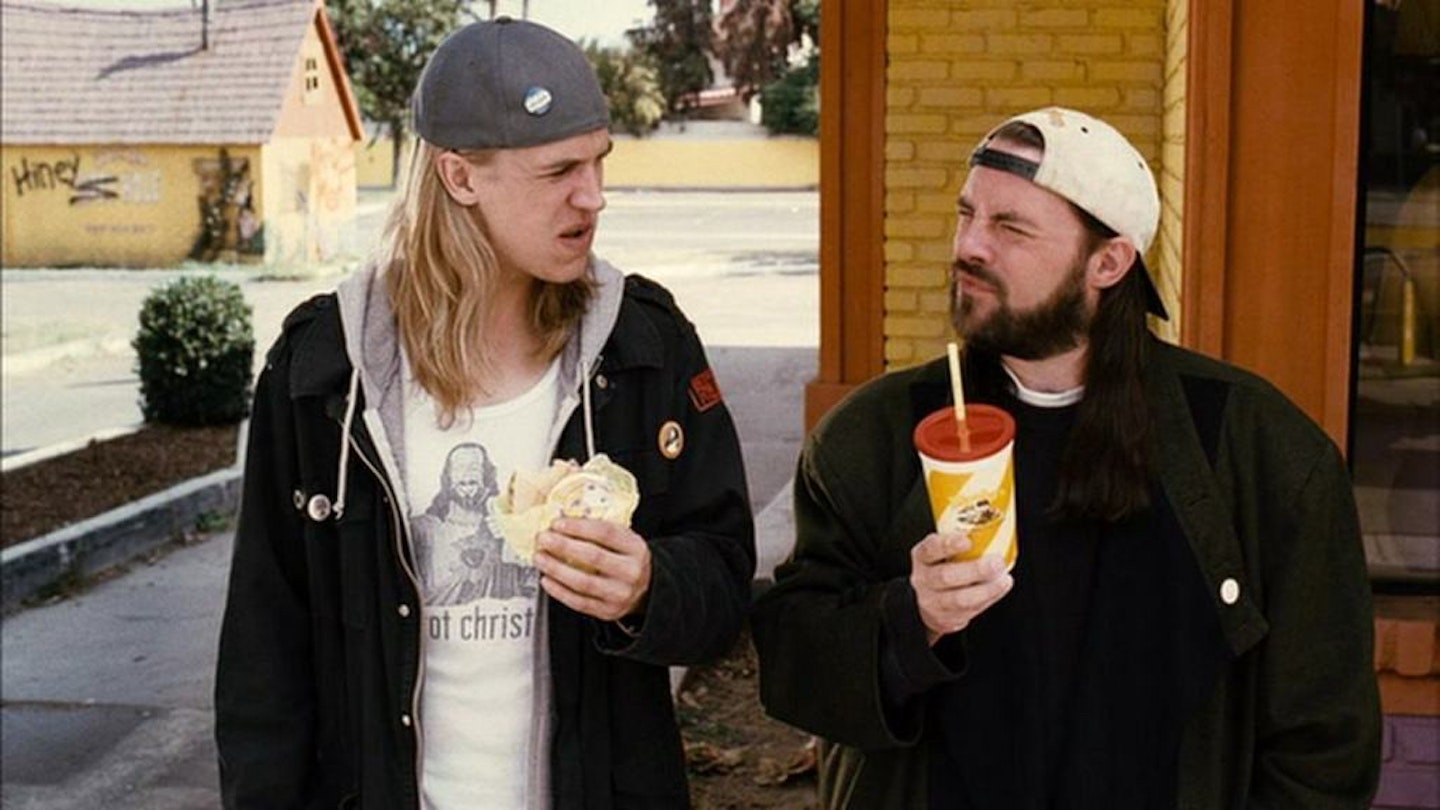If his critical career pattern is to remain consistent, Kevin Smith is due for another kicking. After Clerks (raves), Mallrats (jeers) and Chasing Amy (raves again), the knives are back on standby for Dogma. It is, next to Smith's usual standards, a Simpson/Bruckheimer epic, complete with 'proper' Hollywood stars and a special effects budget.
But this is not a satire or a Python-style skit on organised religion; Dogma is a sometimes touching, sometimes incredibly funny, often confusing attempt to convey the last 2,000 years of Catholicism in one, easy-to-digest communion.
The movie starts with Cardinal Glick (George Carlin) offering absolution to anyone who passes under the archway in his cathedral as part of his "Catholicism Wow!" campaign to get people back into church. Unfortunately, Loki (Damon) and Bartleby (Affleck), two fallen angels who have been banished to Earth, get wind of the Cardinal's intentions and hatch a plan: if they cut off their wings they will become human, and if their sins are absolved they will be allowed back into heaven. But there's a technical hitch. If this happens, it means God will be unbanishing the angels he banished. Which means that God made a mistake - and goodbye civilisation as we know it.
Something must clearly be done about this, so we meet Bethany (Fiorentino), a lapsed Catholic visited by the gloriously jaundiced Metatron (Rickman), the official voice of God, who charges her with the task of heading off the rogue pair before the damage can be done. Setting off on her Oz-style journey, she hooks up with an increasingly oddball cast of characters - black apostle Rufus (Rock), a muse called Serendipity (Hayek) and, inevitably, Smith regulars Jay and Silent Bob - as the end of the world looms nearer. And if it all sounds like a lot of information to process, it is.
Which is the film's chief failing. With so many characters and such a complicated storyline, Smith frequently gets bogged down, culminating in a film that seems unable to work out quite where it ends and who its heroes are.
That said, there are plenty of wonderful and unexpected scenes - not least Alanis Morissette's first appearance in a Hollywood movie - and one-liners to satisfy Smith's aficionados, including a beautiful scene in which Affleck seems to good-humouredly poke fun at the rumours about his friendship with Matt Damon ("Do I come off as gay?"). It's too long and doesn't quite work, but as a marketing campaign for a fresh look at religion it's certainly food for thought. Or as Metatron puts it: "You people. If there isn't a movie about it, it's not worth knowing."








